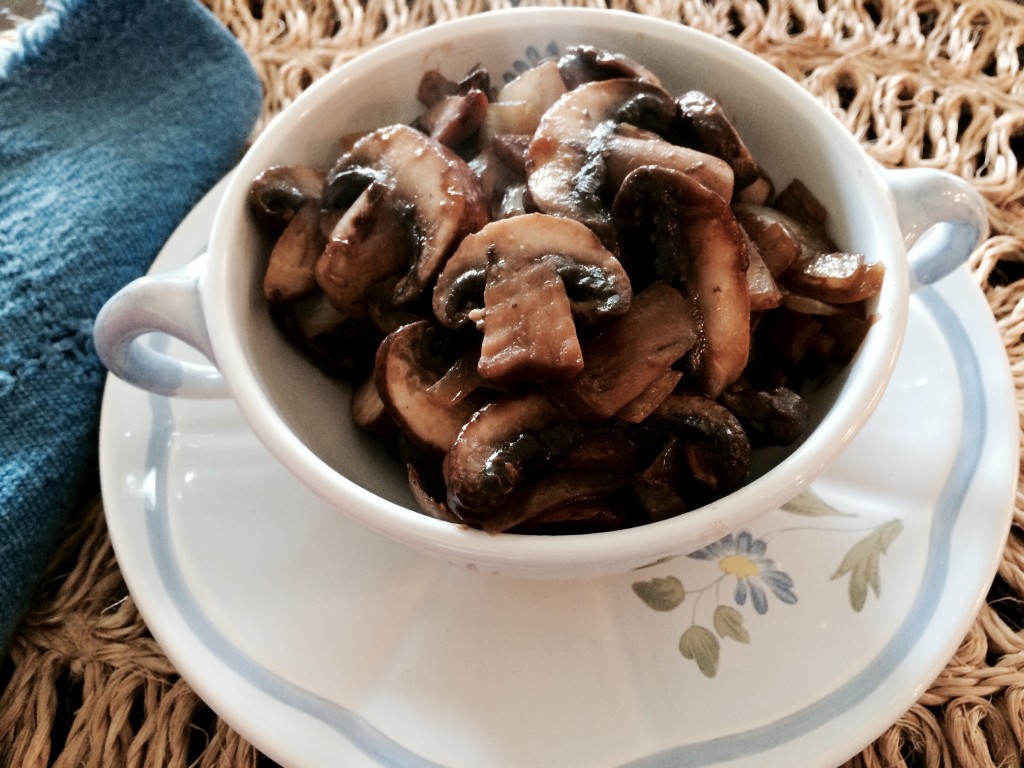Have you wondered about a cancer prevention diet? Well, according to a study conducted by The University of Western Australia in Perth, eating mushrooms daily may reduce breast cancer risk by nearly two thirds. The study, conducted in China, looked at more than 2000 women, half of whom had suffered from breast cancer.
Researchers found the women who ate a third of an ounce of fresh mushrooms every day had lowered their risk of developing a tumor by 64%.
Dried mushrooms didn’t have quite the same benefit, but still reduced the risk “by around half.”
The study also found that the women who regularly drank green tea, combined with their daily serving of fresh mushrooms, reduced their risk by 90%.
When reporting this study in 2009, The Telegraph went on to say that animal tests show mushrooms have “anti-tumor properties and can stimulate the immune system’s defenses.” Mushrooms might accomplish this by blocking “the body’s production of the hormone oestrogen, which can encourage the development of cancer.”
As the author of How to Be a Healthy Vegetarian, I promote a plant-based diet. A vegetarian diet “provides a variety of cancer-protective dietary factors,” according to a study published in The American Journal of Clinical Nutrition. A vegetarian diet reduces obesity.
This study’s author notes that obesity increases cancer risk, and that because the Body Mass Index (BMI) “of vegans is considerably lower than that of non-vegetarians,” a plant-based diet “may be an important protective factor for lowering cancer risk.”
Mushrooms are low in calories and are 80–90% water, which makes them a great substitute for meat when you want to cut calories.
Mushrooms have been studied extensively for their health benefits because they have been found to aid the immune system. These dense, smooth, earthy fungi grow in thousands of varieties, and most of them are rich in potassium, selenium, copper, riboflavin, niacin, pantothenic acid, and B-complex vitamins. One medium Portobello mushroom has more potassium than a small banana.
Five medium cremini mushrooms have more selenium than a large egg or three ounces of lean beef. Plus, the copper in mushrooms helps you make red blood cells, which carry oxygen throughout your body.
Mushrooms are an excellent source of the antioxidants known as polyphenols, selenium, and ergothioneine. Ergothioneine is a master antioxidant, an amino acid containing sulfur. Sulfur is an extremely important nutrient, yet it is often overlooked.
There are many varieties of mushrooms, thousands of which are poisonous, so do not pick them in the wild. Always buy them from a reliable and reputable supplier. Look for mushrooms that are smooth, clean, and fresh in appearance.
To clean them, use a soft mushroom brush or wet paper towel to remove any parts that look dirty or mushy. You can rinse them, but do not soak them.
Keep them refrigerated in the original container until you’re ready to use them. They can keep up to a week in the refrigerator in a porous paper bag, but never put mushrooms in an airtight container and never freeze them.
Always trim the end of the stem before you use mushrooms. If the stems are too tough, just use the caps.
Adding mushrooms to dishes is easy. Thinly slice them for salads, pasta dishes, and sandwiches—or serve them as a side dish.
Grilling them is always great, and mushrooms make a tasty and healthy alternative to a burger. I love to sauté them with onions and butter to bring out the rich flavor of savory mushrooms.
Each mushroom has a different flavor, so experiment by trying different varieties.
For some easy, recipes, you may like my How To Be A Healthy Vegetarian, 2nd edition cookbook. It’s a great place to start for delicious vegetarian food and nutritional advice!
References
“Eating mushrooms daily ‘may cut breast cancer risk by two thirds’.” (16 March, 2009). The Telegraph. http://www.telegraph.co.uk/news/health/news/5000582/Eating-mushrooms-daily-may-cut-breast-cancer-risk-by-two-thirds.html
Craig, Winston J. (11 March, 2009). “Health effects of vegan diets.” The American Journal of Clinical Nutrition, 89(supplement): 1627S-1633S. http://ajcn.nutrition.org/content/89/5/1627S.full.pdf
copyright@nancyaddison2015


